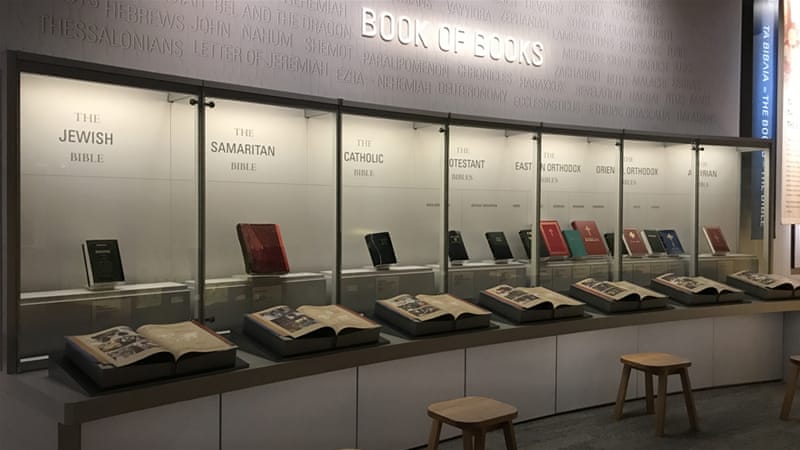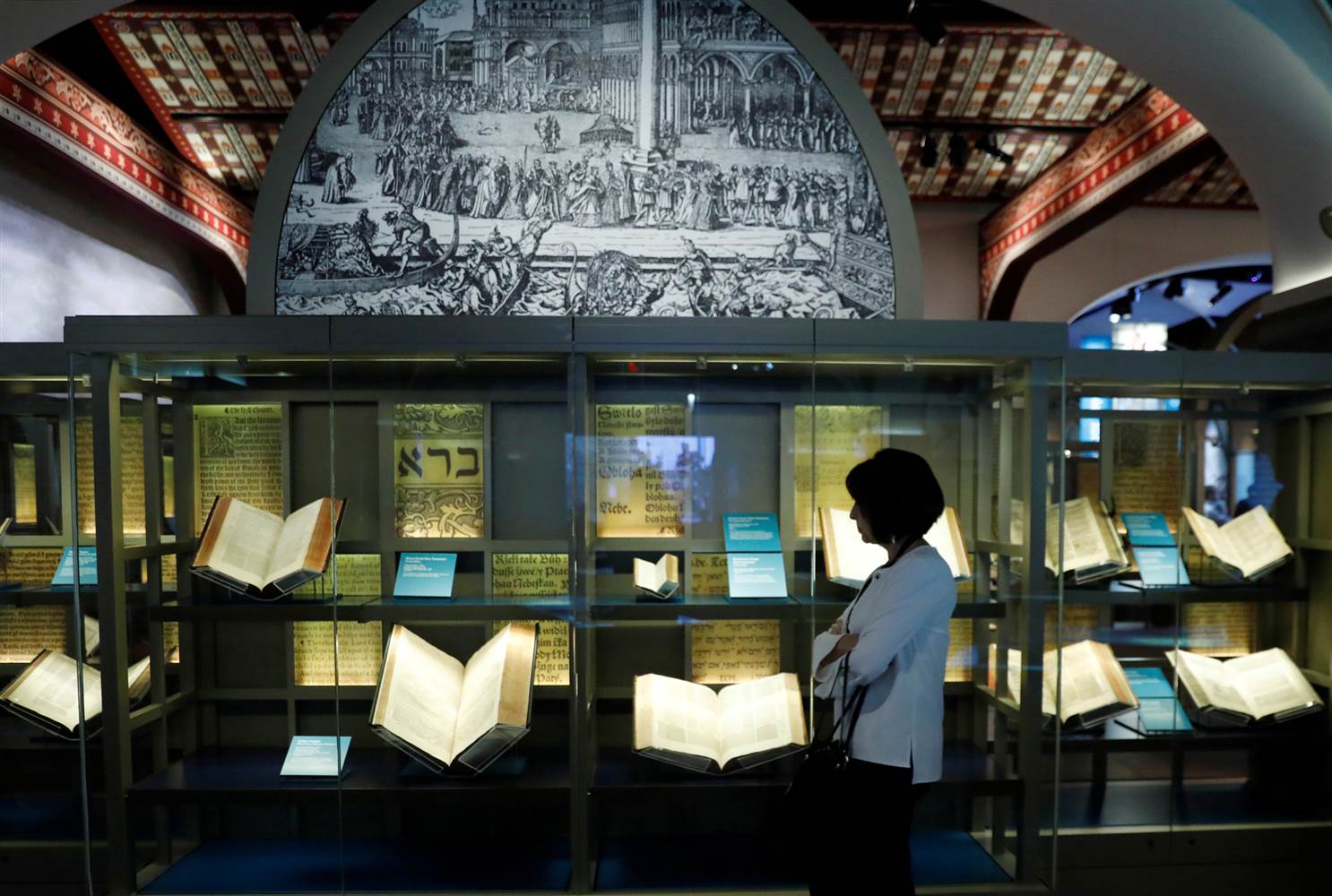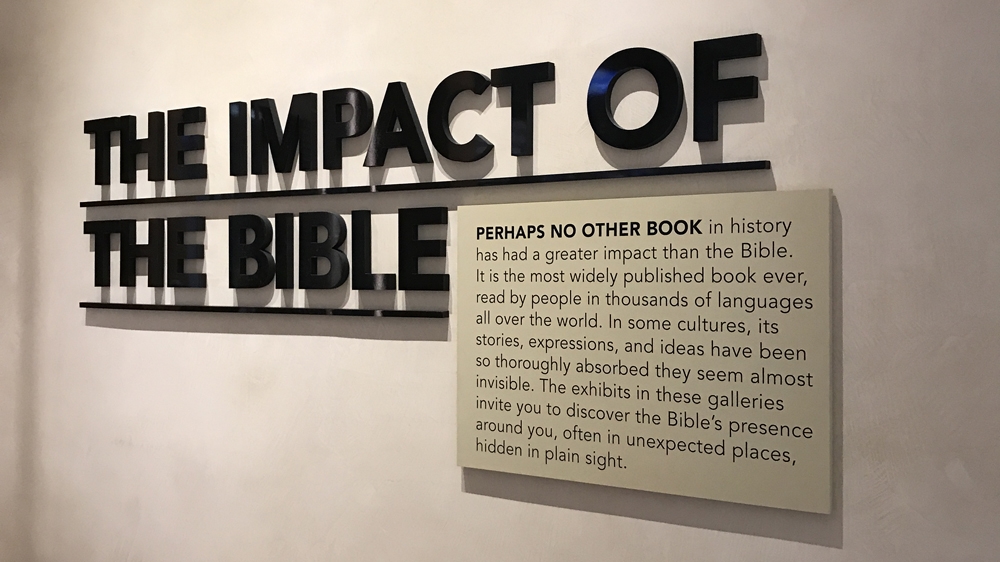It took four years and half a billion dollars to build, a mammoth initiative focused on highlighting and exploring a single book, the Holy Bible.
The Museum of the Bible finally opened on Saturday, November 18, 2017– 430,000 square feet spanning eight floors, with exhibits on the history, narrative and the impact of the Holy Book.
But since its inception, the Washington, DC-based space has been dogged with controversy, stemming mainly from the family bankrolling it.

The museum of interactive state-of-the-art exhibits is largely funded by Steve Green, a businessman with deep evangelical Christian roots, which have raised questions about the museum’s agenda.
Museum officials insist the institution is non-sectarian and inclusive of all faiths – and that it does not have an evangelical agenda reflective of the Greens’ own interpretation of the Bible.
“We’re not about evangelising,” said Tony Ziess, the museum’s executive director.
“We’re about piquing people’s curiosity. We’ll just encourage people to come and take a look at the history of this amazing book and what they do after that is entirely up to them.”

But the Green family’s involvement in promoting their religious beliefs in the public sphere has not silenced growing criticism of the project.
In 2015, the Greens – who own Hobby Lobby, a craft store chain – won a US Supreme Court case to halt their employees’ contraceptive coverage mandated under the Affordable Care Act, citing violations of their religious beliefs.

“Steve Green wants to tell a story of the Bible and the story that he’s always known is the story he grew up with and the story he believes in,” said Joel Baden, a religious scholar at Yale Divinity School and co-author of Bible Nation, a book on Hobby Lobby and the Greens.
“If you’re looking for a non-sectarian organisation, they sure have an entire board made up of Evangelical Christians.”
Another controversy erupted when it emerged that Hobby Lobby had to settle a case with the US government over trafficking in illegal Iraqi cuneiform tablets and clay seals. Green has had to make several assurances that the museum is free of looted artefacts and manuscripts.
“It’s a brand new world for us and so mistakes were made early on,” acknowledged Green.
“We learned from those mistakes. We believe we’ve got a great team today to help us make sure that we don’t make the (same) mistakes.”

‘Pro-Israel gala’
The long-term agreement between the museum and the Israel Antiquities Authority – the governmental body that oversees archaeological excavations – has also raised eyebrows.
The museum says it does not delve into modern-day politics, but references to the annexed Golan Heights as part of Israel, for example, lend credence to arguments that the museum has a pro-Israel slant.
In the museum’s dedication on Friday, Israel’s ambassador to the US, as well as its minister of tourism and the director of the Israel Antiquities Authority were in attendance.
Several faith leaders, including Christians and Jews, also attended – but no Muslims.
“At times, the event seemed like a pro-Israel gala,” The Times of Israel wrote after the event.
The museum directors contend that many faiths, which have been impacted by the Bible, are represented throughout. But the near-absence of other religions, like Mormonism and Islam, has also aroused debates about the museum’s agenda.
The building houses cafes, a biblical garden, 3D theatres, a child-focused area and an entire floor that highlights the Bible’s influence: historical, cultural and other. But there are only two references to the Quran or Islam (a third is from an exhibit on loan from Jerusalem), and one to Mormonism.
“The reason these books are not included is because they are an inconvenient appendix to the story of the Bible that the museum wants to tell,” said Candida Moss, a biblical scholar and co-author of Bible Nation.
“When the story of the Bible culminates in the founding of the United States, it is a distraction to talk about a denomination of Christianity that does not think that the Bible is complete.”
Read more at AlJazeera







